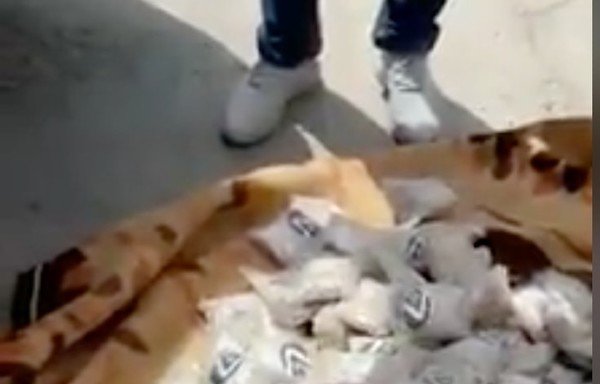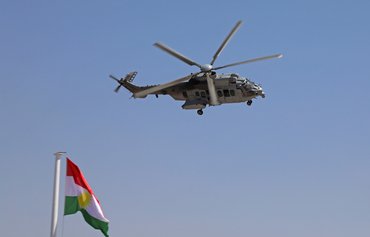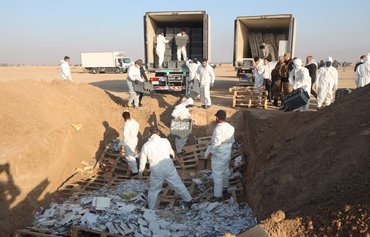Officials in Iraq's Ministry of Interior have recently revealed there is a clear involvement of militias affiliated with Iran's Islamic Revolutionary Guard Corps (IRGC) in various drug trafficking and contraband activities inside Iraq.
They said the militia groups include larger militias like Asaib Ahl al-Haq, al-Nujaba and Kataib Hizbullah, as well as smaller groups such as Saraya al-Khurasani and Liwa Ali al-Akbar.
Due to the impact of US sanctions on the Iranian regime, the IRGC has been unable to provide continuous funding for the militias, which have increased their reliance on drug smuggling from Iran to finance their activities, they said.
Militias exploit PMF status
A senior Iraqi official at the Ministry of Interior's drug enforcement agency, who wanted to remain anonymous, told Diyaruna Iraqi forces face serious problems in tracking drug smuggling networks.
He said the reason is that most perpetrators belong to armed factions linked to the IRGC with identification cards issued by the Popular Mobilisation Forces (PMF).
Iran-backed militias have been exploiting their status as members of the PMF -- using PMF identity cards and vehicles with PMF markings -- to evade detection by security forces.
According to the Iraqi official, crystal meth, captagon, hashish and hallucinatory pills are smuggled into Iraq through its border with Iran.
The border, he said, is a trade route protected by "powerful" militias linked to the IRGC. There is also evidence that IRGC officers receive a percentage of the profits in exchange for facilitating the entrance of these smuggled drugs into Iraq.
"Drugs are burdening Iraq's society, especially the youth," he said.
Despite awareness campaigns about their harmful effects, drugs remain a major problem in Iraqi society with security services waging a daily war against them, he added.
Some 60% of crimes in Iraq, including domestic violence cases, are initiated by individuals under the influence of drugs, the source said.
The government's current directive is to arrest any party suspected of being involved in a drug trade, no matter who it is affiliated with, he added.
An officer with the Tikrit police force told Diyaruna that in early August, Iraqi forces arrested two members of the Asaib Ahl al-Haq militia in Tuz Khurmatu, north of Tikrit, on drug trafficking charges.
Iran's 'non-cooperation at border' poses problems
Basra police chief Maj. Gen. Rashid Fleih said 80% of drugs enter Iraq through Iran, noting that his forces are working hard to secure the borders in co-ordination with other security agencies.
He also called for tougher punishment for major drug dealers to be written into Iraq's penal code.
Ahmad al-Safi, a member of al-Islah Association for Fighting Drugs, a local NGO, said one of the main challenges of the war on drugs in Iraq is that it is being waged against armed militias who act under the cover of the PMF.
Al-Safi said networks that smuggle narcotics, oil or antiques are "known to be backed" by militias linked to the IRGC. This is why, he said, the police usually relies on the army's support in cases of armed conflict with these groups.
Iran "allows drugs to cross into Iraq because it reaps revenues in hard currency (dollars)", he added.
Abdullah al-Rikabi, an Iraqi political and security expert, likened the challenging war on drugs to "cleaning a room with open windows in dusty surroundings".
He said that those trading in drugs and illegally bringing them into Iraq from Iran are the same people claiming they want to protect Iraq and its sovereignty.
"Iraq suffers from Iran's unwillingness to co-operate in controlling the borders, and also suffers from the fact that drug dealers and traffickers are members of influential militias supported by the Iranian regime," he said.
"Iraqis have come to understand this and now harbor anger and resentment towards Iran's role in Iraq," he said.








